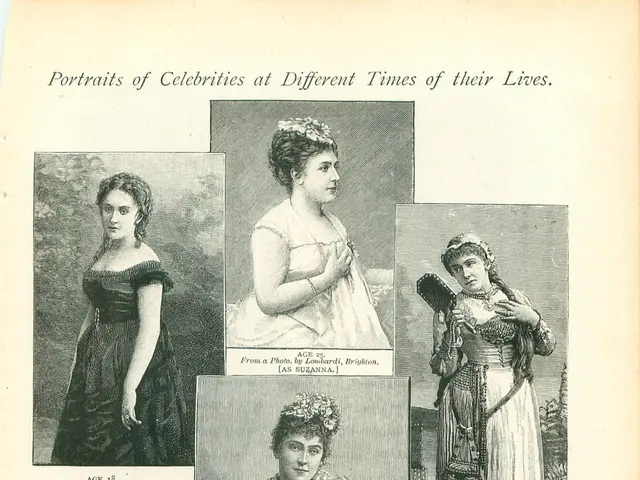Digital Politics Shaping Public Discourse on Online Platforms
In the ever-evolving world of politics, a new player has emerged: the political influencer. These individuals, often known as creators, have gained significant traction in shaping public opinion and influencing elections.
One such figure is Charlie Kirk, the conservative influencer who played a crucial role in supporting Donald Trump's campaigns, particularly in mobilizing youth and voters of colour. Kirk, who had a combined total of 29 million followers on various platforms, visited the White House over 100 times during Trump's first term and helped shape Trump's youth outreach.
However, the death of Kirk at a debate event on September 10 shook the political world. His organisation, Turning Point USA, continues to be a significant force, with reports suggesting that Kirk was personally thanked by Trump and entrusted with grassroots voter drives for the 2024 election.
The influence of political influencers extends beyond the US. In Germany, seven right-wing populist influencers have a combined total of 4.45 million YouTube subscribers. One such influencer, Alexandra Jost, alias "Sasha Meets Russia" and "Sasha's Russian Travels", presents Russia as an always idyllic, safe paradise in seemingly apolitical travel videos. However, she openly advocates for the military takeover of Ukraine and reposts President Putin's threats.
While some political influencers strive to deliver news from high-quality sources, many do not. A UNESCO-commissioned study found that nearly two-thirds of creators do not verify information before sharing it. This lack of fact-checking has raised concerns about the spread of misinformation.
In response to these concerns, social media platforms have implemented new regulations. Instagram, Facebook, YouTube, and TikTok have banned political ads in the EU from October 10th. The new EU regulation on transparency and targeting of political advertising requires additional obligations from the same date.
Despite the ban on political ads, many political actors may increasingly turn to organic content, including that of creators, due to the ban on political ads. This shift could potentially lead to a more authentic and engaging political discourse, as creators have an "authenticity advantage" compared to traditional journalism, focusing on closeness, emotion, and personal address.
However, this new landscape also presents its own challenges. Some in the US are currently trying to walk the tightrope between being truthful, entertaining, and tailored to the algorithms without being populist and selling out one's values. Examples include Brian Tyler Cohen, a well-known influencer close to the Democrats, and Gavin Newsom, the California governor and potential Democratic presidential candidate for 2028.
The German state media authorities are responsible for monitoring the legal landscape but not for the increasingly German-language influencers based abroad. This leaves a gap in regulation and oversight, which could potentially be exploited by those seeking to spread disinformation.
As more and more people, especially young ones, get their news from platforms instead of traditional journalistic apps, websites, newspapers, and broadcasters, the role of political influencers is set to become even more significant. It is crucial that these influencers are held accountable for the information they share and that platforms implement effective measures to combat the spread of misinformation.
In the election campaign for the Bundestag, leading candidates visited shows of influencers, but not all parties are willing to discuss their handling of influencers and payments. The Left invites influencers to party conferences and pays for "close" ones' travel and accommodation, while the CDU, AfD, and SPD did not respond to requests about their dealings with influencers. The Greens spoke of "good experiences" with them in the election campaign.
The rise of political influencers marks a significant shift in the political landscape. As we move forward, it is essential to navigate this new terrain with caution, ensuring that the information shared is accurate and that the platforms used to share it are held accountable for the content they host.
Read also:
- Eighteen-Year-Old Speaks Out Against Lowering Voting Age to Sixteen
- King Charles's body language analyst dissects signs of apparent 'impatience' exhibited by Charles towards Trump
- Mohammad Yousuf publically labeled Suryakumar Yadav as a "pig," an unusual slur Yousuf explained.
- Today's most impactful photographic moments








